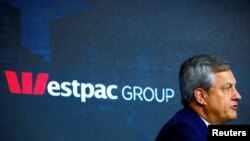Australian bank Westpac has agreed to pay a record fine for the nation’s biggest breach of anti-money laundering laws. The case was brought by the government’s Australian Transaction Reports and Analysis Center, known as AUSTRAC. It said the penalty of more than $900 million sent a strong message to the financial industry to take compliance seriously.
Westpac was accused by government investigators of 23 million breaches of money laundering and counterterrorism financing laws. Australia’s second-largest bank was found to have allowed transactions that were potentially linked to child exploitation in the Philippines and in other countries despite being specifically warned of the risks. If approved by the federal court, the $920 million fine will be easily the biggest in Australian corporate history.
The bank had set aside $630 million to pay the penalty, but that figure was rejected as insufficient by the financial crimes watchdog. AUSTRAC investigators said the bank’s noncompliance was “serious and systemic.”
Australian Attorney General Christian Porter said he believes the agreed-to settlement, which he described using the Australian dollar amount, is fair.
“My very strong view, and the government’s strident view was that the early appropriations that Westpac made, and the figures that were being put early in negotiations with AUSTRAC were totally inadequate, and that this 1.3 billion [Australian] dollar amount more properly reflects both the seriousness of the offending that Westpac had engaged in, but also an acceptance of the fact that these represent some of the greatest failures of a corporate entity in Australia’s history to abide by Australian law,” Porter said.
Westpac has apologized for its “failings.” Chief executive Peter King said the bank was “committed to fixing the issues to ensure that these mistakes do not happen again.”
The bank’s former chief executive and chairman left their positions last year over the scandal.
Opposition politicians are demanding the government push ahead with reforms to further strengthen Australia’s anti-money laundering legislation.
Last year Australia’s banking industry was scrutinized by a royal commission - the highest form of public inquiry - that exposed widespread dishonesty in the sector.




